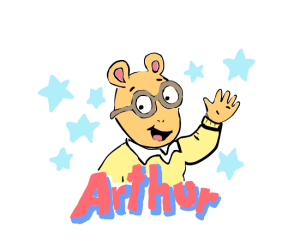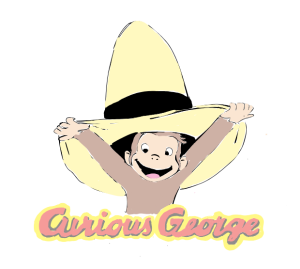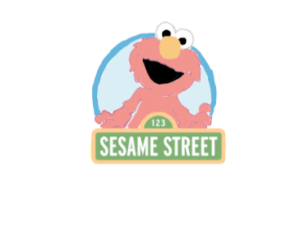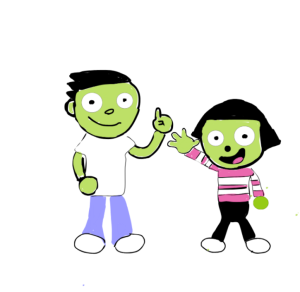
When I was a kid, my morning priorities weren’t about getting ready for school, they were about trying to squeeze in as many episodes of “Curious George” as I could before I had to leave. I’d quickly rush through each part of my morning routine, getting dressed and eating breakfast. Once I finished I quickly sat right in front of the TV.
One morning in kindergarten, I got so caught up in the episode that I completely forgot about the bus. I didn’t even realize until the familiar, “Brought to you by viewers like you” (a slogan that reminds us that PBS is funded by donations from the public) screen came on. That phrase marked the end of every PBS Kids episode, but it wasn’t just a sign off. It was a reminder that these programs were funded by people like me.

Although I missed the bus and my mom had to drop me off, that moment has always stuck with me because of how deeply “Curious George” and shows like it captivated me. There was something magical about PBS Kids programming. Whether it was “Arthur”, “Odd Squad”, or “WordGirl”, these weren’t just cartoons. They were portals into other worlds – worlds that didn’t just entertain us as kids, but taught us how to think, empathize and learn.
Jordyn Hein (11) was an avid PBS Kids watcher, explains how these shows left a lasting impact on her.
“The [shows] just brought me [so much] joy to watch with my brother and it was [a] good bonding experience with him,” Hein said.
Now, it’s hard to imagine that those very shows might not be there for the next generation. PBS, the network behind PBS Kids, is currently facing major defunding. According to National Public Radio (NPR), in July 2025, Congress approved a Trump administered plan to rescind $1.1 billion from the Corporation for Public Broadcasting (CPB), the main source of federal funding for PBS, NPR and around 1,500 local stations, by over $500 million, which could significantly reduce children’s programming. According to Parents.com, this move could leave over 17 million children without access to high-quality educational content, especially in low-income households.
Rachel Campbell, English teacher, mentioned how PBS Kids was so important and influential to her when she was younger, so hearing about PBS getting defunded was a shock.
“My initial reaction was sadness because [PBS] was so influential to my childhood,” Campbell said. “It’s disappointing that future generations might not have that same experience or access to those kinds of shows.”

PBS Kids isn’t just another kids’ channel. It’s one of the few free educational resources available to children who may not have access to quality schooling, reliable internet, or streaming services. In communities with underfunded school districts or in homes where parents work multiple jobs and can’t afford daycare or enrichment programs, PBS Kids has filled in those educational gaps.
These programs introduce children to reading, science, problem-solving and even social-emotional learning. For example, I learned how to sound out words thanks to “WordWorld” and I understand the importance of friendship through “Arthur”.
Campbell also explained how the programs helped her reinforce her foundational skills when she was younger.
“[PBS] really cares about [how] to be a good community member,” Campbell said. “It focuses on those kinds of themes, on working together, being a kind person, being a helpful person, in addition to what kind of education we think all children should have access to.”
Similarly, Monica Caldicott, a long-time PBS supporter, expressed her commitment by donating to the network every year. As a parent, she explained how PBS Kids was an essential part of her children’s development.
As a parent she explained how PBS Kids and other shows like “Spongebob” or “Tom and Jerry” really had a difference and how she preferred her kids watching PBS Kids than any other show because of the lessons they learned from them.
“There were shows on cable that I didn’t want them to watch because it had just the opposite feeling…like being mean to each other for a laugh,” Caldicott said. “I miss the PBS Kids days because I do think that it gives kids a safe place to grow up.”
A study by CPB found that 84% of parents said PBS Kids helped their child learn essential school readiness skills. That’s exactly what makes the threat of defunding so alarming. Without PBS, many families would lose not only a beloved part of childhood, but also a crucial tool for early education.

Even today, you can still see traces of PBS Kids’ influences by students picking their senior backpacks with their favorite shows like, “Wild Kratts”. It’s a testament to how deeply these shows stuck with us.
This is more than just nostalgia. It’s about equity. Cutting PBS funding doesn’t just hurt a television network; it hurts the kids who rely on it. The decision to pull that funding sends a clear message: that free, accessible, and educational media for children isn’t a priority.
Ellen Macias, English teacher, expands her thoughts about this as well.
“PBS just always held the value of being really high quality and good for kids’ brains,” Macias said. “It’s just hard to find that now [because] there’s not as much of it.”
Defunding PBS Kids is a huge mistake. These programs didn’t just entertain — they helped shape who we are. They gave kids a safe, educational space to grow, to feel seen, and to learn without judgement or pressure. Taking that away isn’t just a budget cut — it’s a disservice to millions of kids who deserve the same opportunities we had growing up.
But it’s not too late. As viewers, parents and educators, we can still advocate for the importance of public media. We can demand that lawmakers recognize the crucial role PBS Kids plays in shaping the next generation. Every phone call, letter, petition and donation can make a difference.
It’s a reminder that public media isn’t just a luxury — it’s an essential service that supports the well-being and educational growth of children across the globe.
By supporting public funding for PBS, we’re not just saving a channel or a few shows. We’re ensuring that future generations of kids have the same opportunities we had. Together, we can make sure PBS Kids continues to be there for those who need it the most.
All drawings by Misha Rahman
